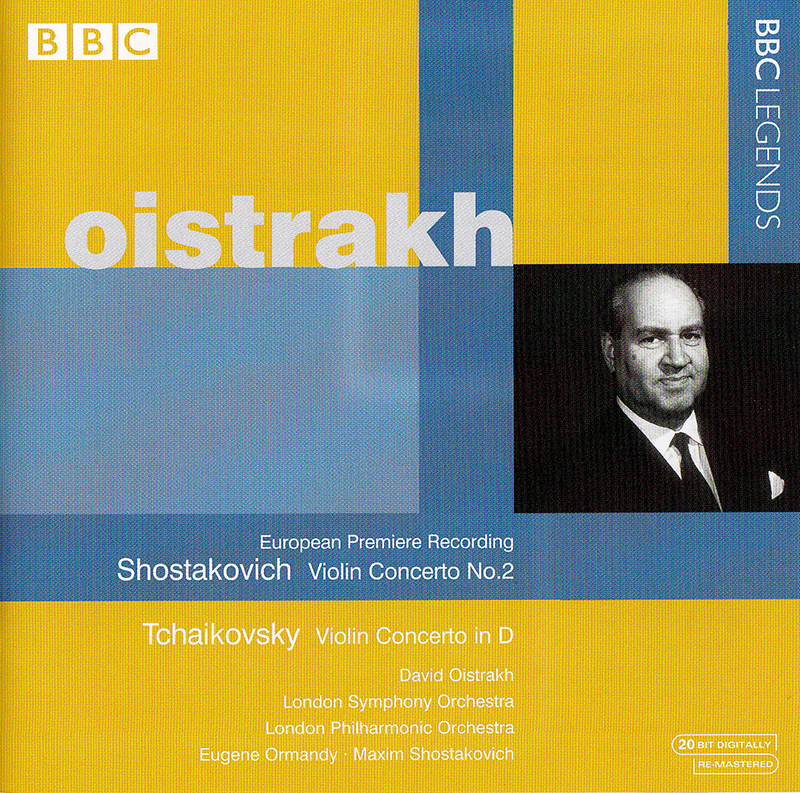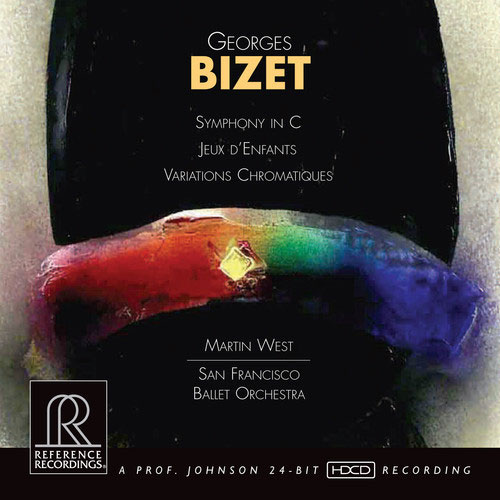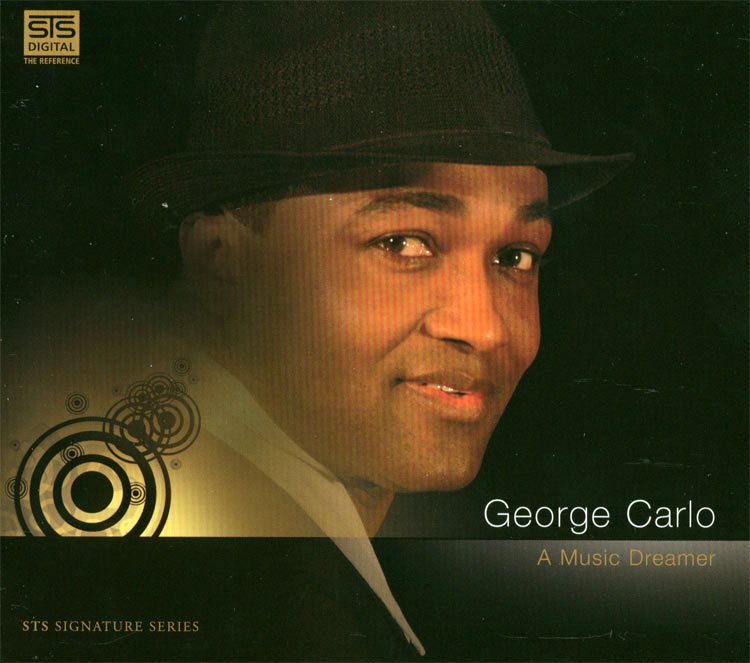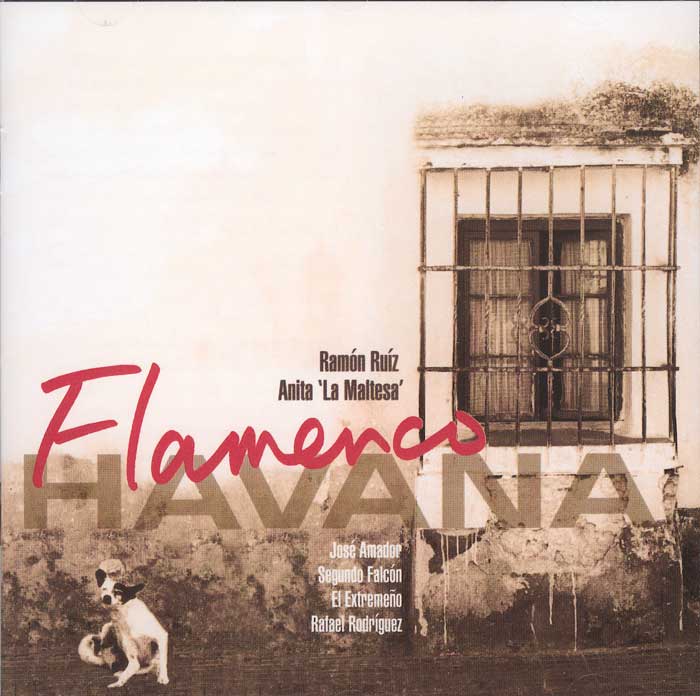Logowanie
Dziś nikt już tak genialnie nie jazzuje!
Bobby Hutcherson, Joe Sample
San Francisco
SHM-CD/SACD - NOWY FORMAT - DŻWIĘK TAK CZYSTY, JAK Z CZASU WIELKIEGO WYBUCHU!
Wayne Shorter, Freddie Hubbard, Herbie Hancock, Ron Carter, Elvin Jones
Speak no evil
UHQCD - dotknij Oryginału - MQA (Master Quality Authenticated)
Chesky! Niezmiennie perfekcyjny
Winylowy niezbędnik
ClearAudio
Double Matrix Professional - Sonic
najbardziej inteligentna i skuteczna pralka do płyt winylowych wszelkiego typu - całkowicie automatyczna
SHOSTAKOVICH, TCHAIKOVSKY, David Oistrakh, The London Symphony Orchestra, London Philharmonic Orchestra, Eugene Ormandy, Maxim Shostakovich
Violin Concerto No. 2 in C-Sharp Minor, Op. 129 / Violin Concerto in D Major, Op. 35
- David Oistrakh - violin
- The London Symphony Orchestra - orchestra
- London Philharmonic Orchestra - orchestra
- Eugene Ormandy - conductor
- Maxim Shostakovich - conductor
- SHOSTAKOVICH
- TCHAIKOVSKY
The concert of 19 November 1967 at Royal Festival Hall opens with the Bliss Fanfare by the LSO, Eugene Ormandy conducting. A bit reminiscent of the Dukas Fanfare from La Peri, the brassy piece celebrates a gala for the LSO Trust. Immediately, violinist David Oistrakh (1908-1974) begins to apply any number of double stops for the European premiere the Second Shostakovich Concerto, composed May 1967. The Moderato’s punctuated rhythmic kernel from the violin and drum finds a partner in its ministrations in the first French horn, here Barry Tuckwell. The searing intensity of the violin part, despite its obsessive repetitions, becomes mesmeric in the two respective cadenzas, muscularly lyric and modally ironic. The militant rhythm in French horn, drum, and woodwinds accompanies the violin to the coda, which collapses of its own reiterated weight. Violin and flute urge the Adagio forward, a dark song in requiem hues, to which the French horn contributes. In three parts, its modality and expressive intensity pay homage to the Beethoven C-sharp Minor Quartet that may have inspired much of this concerto’s affective life. The accompanied cadenza emit’s a resonant albeit rasping power, not conciliatory but almost Hebraic in its plaint. The string tremolandi and serpentine bass lines suggest a chamber music atmosphere in which a perpetual cantilena or psalmody ushers forth. More brass sarcasm invokes the final Adagio–Allegro, violin part swift and jerky, with the horn part mocking the opening tune from Mozart’s G Minor Symphony. The rondo becomes raucous, violent, manic, and the solo violin cadenza echoes its vehemence while trying to negotiate a devil’s dance out of the rubble. The wailing cadenza picks up orchestral voices, a series of banshee riffs howling in the wilderness. At the last beats, the audience erupts into wild applause, oblivious to the work’s inherent limitations. Oistrakh’s perennial staple at Royal Albert Hall, the Tchaikovsky Concerto (26 November 1972) finds in this evening’s collaborator Shostakovich’s son Maxim. They play a largely uncut version of the Concerto, played with unbridled enthusiasm and affectionate gusto. The muscular sinewy approach to the first movement has a clarion persuasiveness that becomes quite thrilling in its technical security and the plastic lines elicited from its arched melodies. Shostakovich savors his own expansive tuttis with a flair we might associate with spirited performances of the Tchaikovsky ballet suites. The interior work between clarinets, bassoons, and oboes remains distinctive throughout the weaving contexts of the development. The mighty cadenza reveals Oistrakh at the acme of his form, given his remaining two years of active life. Something must be said for the sumptuous tone of the 1705 Marsick Stradivarius Oistrakh plays to perfection. How the LPO attendees could remain silent at the conclusion of the first movement is a miracle in itself. The lyrical G Minor Canzonetta and wickedly inflected flamboyant Allegro vivacissimo, however, inspires them soundly enough, the brilliant rendition arousing near apoplexy in the hysterical audience. –Gary Lemco






































